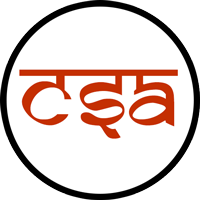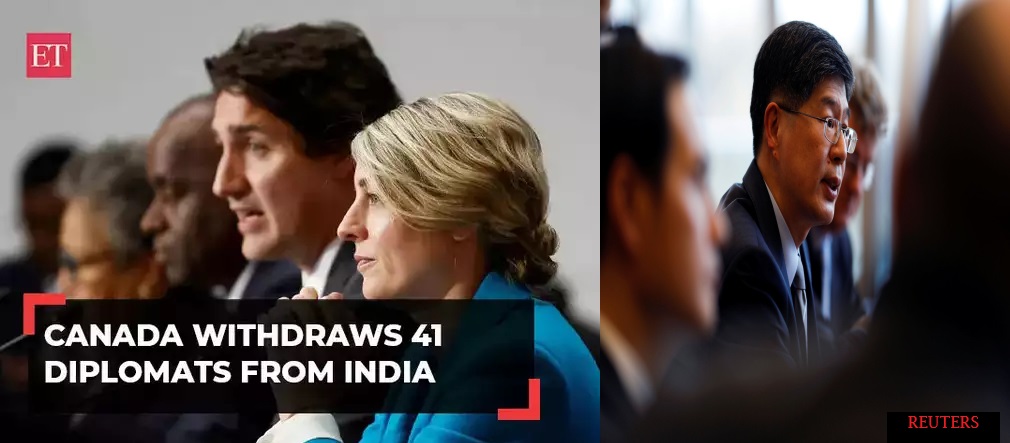By Nakshatra Jagannath & Dr. A Adityanjee
Background
A very radical blood-stained secessionist movement fostered, sponsored by Pakistan’s inter-service intelligence agency (ISI) and General Headquarters (GHQ) had paralyzed the agricultural bowl of India – Punjab in the 1970s and 1980s. Canadian government despite intelligence report was unable to prevent use of its sovereign territory by international Sikh terrorists despite repeated warnings by the Government of India in 1980s. Pierre Trudeau, the then Prime Minister refused to extradite a terrorist Talwinder Singh Parmar in early 1980s on a very specious argument that the British Queen was not India’s monarch and hence he would not extradite this terrorist to India. Such a lackadaisical attitude led finally to bombing and mid-Atlantic crashing of Air India’s Flight 182 airplane Kanishka in 1984 by a Sikh terrorist group Babbar Khalsa leading to loss of lives of 329 innocent passengers, including 289 Canadian citizens, 27 British citizens and 24 Indian citizens. Canada also dropped the ball in bringing the perpetrators to justice in a timely manner. All that sordid saga is art of the history that India just cannot forget and forgive.
Introduction to International Diplomatic Affairs
International Diplomacy is an art and the canvas of international relations is a fragile which should be dealt with cautious dialogue. Recent adoption of wolf warrior diplomacy is China is not being appreciated by anyone in the world so to say The era of gunboat diplomacy is over. Threats and attempts to bully nations in clear words and acts not in line with the international law and diplomatic conventions are no longer acceptable.
Such tactics and actions leave an imprint and distort this beautiful and vital canvas which forms a key part in the world of international relations. One such undiplomatic incident in the recent past has left the world to ponder whether international law and conventions are just theoretical meant only for scholars in universities, students in libraries, and key-board warriors, or whether they still hold true value and real meaning when it comes to the practical world that we all inhabit.
Analyzing further the background, Canadian Diplomatic Upheaval
Naturalized Canadian citizen and a wanted terrorist Hardeep Singh Nijjar in June 2023 caused an upheaval in diplomatic relations between Ottawa and New Delhi. To give a backdrop of affairs, Hardeep Singh Nijjar was a proclaimed offender in India and leader of the Khalistan Tiger Force – a banned extremist organization that operates from overseas towards the nefarious mission of creating a separate ethno-religious sovereign state in the northern region of India. He had traveled to Canada in 1997 on a forged passport under an assumed name Ravi Sharma and his application for political asylum was initially rejected as fraudulent by Canadian immigration authorities. He applied again for legal status in Canada by entering into a fraudulent marriage and the application was rejected for the second time. Somehow the powers that be in Canada subsequently granted him legal status in Canada very quietly.
Having acquired Canadian citizenship in 2007, Nijjar had forcefully become the President of a local religious Sikh temple in Surrey, British Columbia. He ran violent campaigns, entered local politics and initiated multiple fundraisers to plan terror attacks in India. He was also involved in drug related gang warfare. The Interpol, in 2014, had issued a red corner notice against Nijjar, and subsequently in 2020, the Indian authorities announced Nijjar to be a fugitive terrorist. In 2022, Government of India opened diplomatic channels with the concerned authorities in Ottawa to extradite him to India through the 1987 bilateral treaty with Canada. However, the Canadian government yet once again ignored this plea. Ostensibly, they put him on the no-fly list and seemingly sheltered a proclaimed terrorist who by now had raised a gang of radical fanatics in Surrey, BC. This was followed by the alleged murder of Nijjar in Canada in June 2023 perhaps in a criminal gang warfare per local journalists. Following Nijjar’s murder, Canada based Sikh terrorist organizations and Trudeau administration leveled baseless allegations and accused India of conspiring to eliminate Nijjar- a Canadian citizen on Canadian soil.
Diplomatic Dance Drama
Canadian Foreign Minister Melanie Joly doubled down on the allegations but renewable refused to share any concrete evidence. She wanted quiet diplomacy to work bilaterally but forgot her Prime Minister’s loudmouth actions and utterances in Canadian parliament which was anything but quiet diplomacy. This became a bone of contention between the two countries. India retaliated by suspending visa operations in Canada. Furthermore, in a spirit of reciprocity India asked Canada to downsize its diplomatic contingent in India to the number of Indian diplomats stationed in Canada. Canadian diplomats were consistently interfering in India’s internal affairs during the farmer’s agitation and the CAA protests. Justin Trudeau regime invoked The Vienna convention as a fig leaf to attack India. The Vienna Convention on Diplomatic Relation 1961 allows for reciprocity in the number of consulates and number of diplomats by the host country. Initially Canada refused to heed to Indian advice.
Later, they were forced to withdraw 41 Canadian diplomats from Indian soil as they would have lost their diplomatic privileges. In Clarity, international laws, diplomatic conventions, privacy, and individual freedom were compromised on one hand and the grave plausible act of state-sponsored snooping on Indian diplomats stationed in Ottawa according to reports angered Indian government.
Were Indian diplomats under constant surveillance in Canada? If this were true, it violates the provisions of the Vienna Convention on Diplomatic Relation 1961 and further complicates the perplexed scenario. Such illegal surveillance of Indian diplomats will severely hurt the Indo-Canadian relations. More so, these developments have opened fresh debates as to what could be the nature of this plausible state sponsored surveillance. While some suggest it to be snooping over informal conversations between diplomats, and employees in the Indian High Commission in Canada, others suggest it could be a rampant surveillance project encompassing tapping of mobile phones, illegal scrutiny of documents, and monitoring movements of the diplomats.
Whatever the case turns out to be, this grossly illegal, and bizarre act of seemingly state sponsored surveillance of Indian diplomats in Canada has compelled many to rethink and reconsider the safety, dignity and freedom of operation of foreign diplomats in host countries. If the basic boundaries of mutual respect and dignity can be overstepped and trampled upon by host countries, the diplomatic missions will be rendered without any tooth and nail. A fresh angle emerged in the Ottawa story soon after Nijjar’s son revealed to the press that “his father met regularly with officials of the Canadian Intelligence agencies.” If this is verified to be true, it hints to a unfortunate and disastrous possibility of Canadian Intelligence agencies cooperating and sharing intelligence with a wanted terrorist. Canada seemingly harbored an international terrorist thereby not only providing him with a safe haven but also possibly cooperating with him by providing intelligence information and through that encouraging him in carrying out his terror activities.
In any case, snooping over diplomats and putting them under illegal surveillance on foreign soil not only violates the Vienna convention, but also sets a dangerously alarming precedent and a foul trend. If diplomats do not enjoy privacy, protection, and freedom, then what is the purpose of setting up elaborate arrangements for diplomatic missions? The entire meaning, and purpose of diplomacy falls out, and loses its value and the world moving ahead can depend on unscrupulous means, tactics, and illegal surveillance to resolve issues, and develop thereby. The secrecy and privacy of diplomatic missions and diplomats in host countries are of paramount importance. If violated, neglected and misused, such practice could have serious repercussions on diplomatic relations, as it did in the case of India and Canada. No amount of explanation and caveats can justify this grave questionable act which not only defeats the purpose of diplomacy but also jeopardizes the safety of diplomats abroad.
Nakshatra Jagannath
CSA Training Fellow at the Council for Strategic Affairs. He is based in Kolkata, India.
Dr. A Adityanjee
President of the Council for Strategic Affairs. He is based in Cleveland, OH, USA.
Conclusion
However, To conclude, Canada must come forward, and reveal the signal and human intelligence input if any thereby expecting cooperation. Two months have passed since Justin Trudeau’s original statement in Canadian parliament on September 19th, he is still harping on the ‘credible allegations” without sharing any concrete evidence. India is a responsible nation and Canadian government must cooperate and untangle the complicated ties for their own good. It would be absolutely in Canada’s interest to open healthy channels of diplomatic dialogue to resolve the issue at hand and cooperate further in the extradition process of many other terrorists that are in hiding on Canadian soil with connivance and support from Canadian government. This act of sheltering terrorists not only jeopardizes India’s national security but also jeopardizes that of Canada. Canada has become a de facto fountainhead of terrorism analogous to Pakistan. The Trudeau administration must do course correction, apologize for grave diplomatic errors and initiate normalization of bilateral ties. To save the canvas of diplomatic relations from any further distortion, this move must come immediately.
An unconditional apology by Canada will eliminate any room for further speculation and publishing of conflicting and possibly motivated reports from both the sides. Moving ahead, the “Five Eye” countries must respect basic boundaries when it comes to hosting diplomatic missions. This mutual respect forms the cornerstone of international relations.



